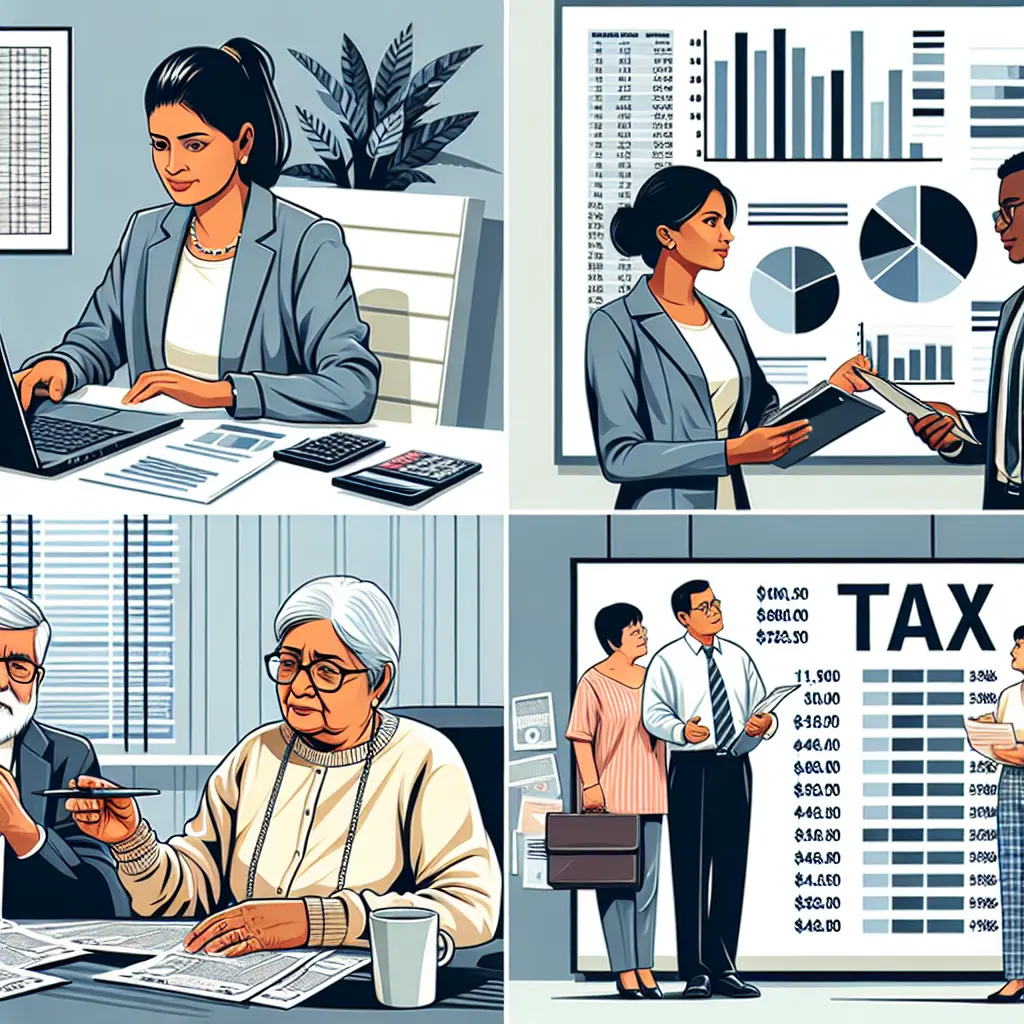Three Things You Should Look For When Hiring a Tax Professional
If you need tax help, be sure that your chosen professional has all of the right credentials and experience. They must understand current tax law well enough to communicate it clearly to their clients.
Tax professionals typically fall into three main categories, including CPAs, EAs and enrolled agents. Their qualifications, credentials and experiences vary accordingly.

1. Qualifications
Selecting a qualified tax professional can have a tremendous impact on your finances. When looking for one, ensure they possess both high qualifications and ethical practices, can explain complex tax matters clearly, identify opportunities for savings and work well as part of a team.
Experience is of utmost importance when seeking out tax professionals, given that tax laws frequently change and filing taxes is no easy feat. Joining an accounting or finance association could also help connect you with someone whose experience matches up with your specific requirements more closely.
Non-credentialed tax preparers may assist you with basic forms, but cannot represent you if a problem arises with the IRS or tax attorney. When looking for help from a professional with credentials such as EA (enrolled agent), CPA or tax attorney they provide greater representation rights against IRS audits and problems.
Look for a tax professional that’s proficient with modern technologies and software, to make sure they remain up-to-date with changes to tax law and can quickly file your return with precision. Furthermore, their expertise may provide time and stress savings as you don’t have to conduct research yourself on all the various regulations affecting taxes – they could provide advice on ways to reduce your tax liability with deductions, investment strategies or other tactics; especially useful if audited regularly or need guidance in complex tax matters.
2. Experience
Tax law can be complex and even small mistakes can have serious repercussions, so hiring an experienced professional to file your taxes correctly and take advantage of all possible deductions is important to peace of mind. Furthermore, make sure they know local rules which may impact their filing procedure as different states have unique taxation systems that could alter filing processes significantly.
While hiring a tax professional might seem like a waste of money, they could actually save you money in the long run by helping avoid costly mistakes and filing your taxes efficiently. Furthermore, tax professionals offer many other services such as record keeping, consulting and auditing that may come in handy as well.
There are numerous tax professionals to choose from, such as CPAs, EAs and tax attorneys. When searching for one that’s the right fit for you in your state and with regards to experience and education; be sure to inquire as well about fees for filing electronically as well as other services they provide.
Tax professionals should possess excellent communication skills. They should be able to explain complex financial concepts clearly, while answering your queries patiently and clearly. Furthermore, your chosen professional should collaborate well with other financial providers such as bankers or investment advisors.
For businesses, tax professionals are an indispensable asset. In particular, small business tax specialists understand the intricacies of your industry’s taxes and deductions as well as federal and state regulations to help ensure compliance. Furthermore, tax professionals for small businesses provide invaluable guidance on structuring businesses efficiently in order to reduce tax liabilities.
3. Personality
As tax season nears, it’s wise to find the perfect tax professional. After all, they will be handling sensitive information about you such as bank accounts and marital status as well as children so it is vital that they are reliable professionals that keep your best interests in mind at all times.
As part of your research, it’s essential that you determine if they are licensed in your state (Certified Public Accountants must be licensed by their state Board of Accountancy; Attorneys should belong to their local bar association; Enrolled Agents need to register with the IRS Office of Enrollment). This step is key as some states may impose local taxes or tax rules which differ from federal ones and therefore need a specialist who understands these differences.
Pay special attention to their communication style. A good tax accountant must be able to explain complex financial concepts and strategies in clear language without using technical jargon – this is especially essential considering they will work closely with your business to help maximize deductions that may benefit over time.
Avoid tax preparers who make extravagant promises, such as promising larger refunds than other tax preparers or offering “refund anticipation loans”. Such services are both expensive and potentially contain hidden fees. Also be wary of anyone offering to deposit all or part of your refund into their own bank account without your approval; doing so violates federal law and should serve as a red flag to any prospective preparers.

